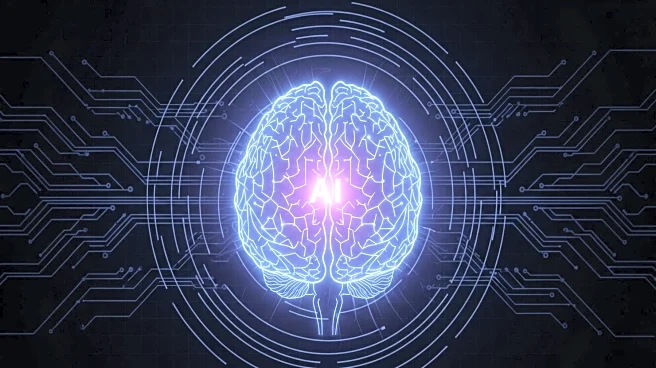What's Happening?
The widespread use of artificial intelligence (AI) is raising concerns about its impact on critical thinking and worker efficiency. A recent survey concluded that while AI can enhance worker efficiency, it may also inhibit critical thinking and lead to overreliance on technology. This development has sparked a debate about the role of AI in professional settings, particularly in fields that require rigorous mental work, such as law. The article reflects on the shift from traditional methods of problem-solving to immediate reliance on AI tools, questioning whether this reliance is making individuals lazy and less capable of independent thought. The discussion highlights the potential consequences of AI's pervasive presence in everyday tasks and professional duties.
Why It's Important?
The implications of AI's influence on critical thinking are significant for various sectors, including law, education, and business. As AI tools become more integrated into daily operations, there is a risk that essential skills such as problem-solving and independent analysis may diminish. This could affect the quality of work and decision-making processes, leading to a workforce that is overly dependent on technology. The potential loss of critical thinking skills poses challenges for industries that rely on human judgment and expertise. Additionally, the ethical considerations of relying on AI for tasks traditionally performed by humans raise questions about accountability and the future of professional development.
What's Next?
As AI continues to evolve, industries may need to reassess their reliance on technology and find a balance between efficiency and maintaining critical thinking skills. Educational institutions and professional organizations might consider implementing training programs that emphasize the importance of independent thought and problem-solving. There may also be discussions about the ethical use of AI in professional settings, ensuring that technology complements rather than replaces human capabilities. Stakeholders, including policymakers and industry leaders, could play a role in shaping guidelines and standards for AI usage to safeguard critical thinking and professional integrity.
Beyond the Headlines
The integration of AI into daily life and work environments could lead to long-term shifts in how society values and cultivates critical thinking skills. As technology becomes more advanced, there may be cultural and ethical debates about the role of AI in shaping human behavior and decision-making. The potential for AI to influence societal norms and expectations around intelligence and problem-solving could have profound effects on education systems and workforce development strategies.











